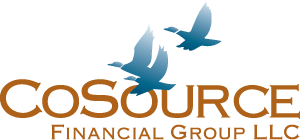What’s So Great About a Rollover?
Changing jobs can be a tumultuous experience. Even under the best of circumstances, making a career move requires a series of tough decisions, not the least of which is what to do with the funds in your old employer-sponsored retirement plan.
Generally, you have four choices when it comes to handling the money in a former employer’s retirement account.
Cash out of the account. However, if you choose to cash out, you may be required to pay ordinary income tax on the balance plus a 10% early withdrawal penalty if you are under age 59½.
Leave the funds in your old plan. However, some plans have rules and restrictions regarding the money in the account, and you’ll have to keep up with information in multiple places.
Roll the money into an IRA. Rollovers may preserve the tax-favored status of your retirement money. As long as your money is moved through a direct “trustee-to-trustee” transfer, you can avoid a taxable event.
Roll over the assets. Moving the assets to your new employer’s plan is possible if one is available and rollovers are permitted.
For people who choose to roll over these funds into their current employer’s 401(k) plan, they do so for good reason. While each 401(k) plan is different, rolling over an old 401(k) to a new one is potentially more cost effective. Be sure to compare costs between your old plan and the new one.
It’s generally easier to manage one account versus multiple accounts. By rolling the funds from your old employer-sponsored retirement plan into your current one, you can keep all of the information in one place. That way, you won’t leave behind any funds in an old 401(k) plan.
Some people change jobs several times during the course of their careers, leaving a trail of employer-sponsored retirement plans in their wake. By rolling these various accounts into your current employer’s 401(k) plan, you will make the process of managing the funds, rebalancing your portfolio and adjusting your asset allocation easier.
—
Both qualified retirement plans and IRAs typically involve fees, expenses, and services that should be compared when considering a qualified plan rollover. Retirement plan withdrawals may be subject to taxation and penalties when withdrawn early. Employees who withdraw funds in a 401(k) plan before age 59½ may have to pay a 10 percent tax on any withdrawals, in addition to any regular income tax.





